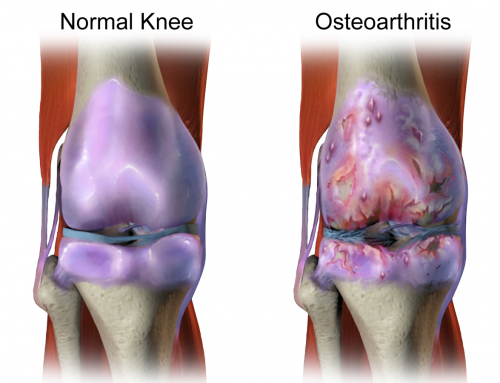Your thyroid gland is a butterfly-shaped gland, weighing about 1-2 ounces, located below the front of your throat (right below the Adam’s apple in men). It is an incredibly important part of your endocrine system. Hypothyroidism means the thyroid is not functioning at a sufficiently high level. If the thyroid is functioning poorly, or not at all, some of the common symptoms will include:
- fatigue, exhaustion, sluggishness
- feeling cold, especially in the extremities
- depression, moodiness
- difficulty concentrating, brain fog
- unexplained or excessive weight gain
- low blood pressure
- frequent illness
- dry, coarse and/or itchy skin
- dry, coarse and/or thinning hair
- constipation
- increased menstrual flow, more frequent periods
- infertility/miscarriage
The opposite of hypothyroidism is known as hyperthyroidism, where the thyroid is operating at too high a level. When the thyroid operates hyperactively or excessively, it can cause symptoms such as:
- nervousness, irritability
- panic disorder
- weight loss and loss of appetite
- fine brittle hair
- muscle weakness
- increased sweating
- shaky hands
- insomnia
- racing heart
- more frequent bowel movements
- lighter and less frequent menstrual periods
There is such a wide range of thyroid-related symptoms because your thyroid performs some very important functions in the body:
- Basal metabolic rate (BMR): This is your body’s resting rate of cellular activity (your metabolism) and temperature.
- Brain development and function: Thyroid hormones are critical in the fetus during pregnancy, as well as in children. In adults, the thyroid affects memory, thinking and concentration.
- Protein synthesis: How the thyroid regulates the body’s creation of new proteins and tissues.
- Hormone support: Thyroid hormones increase the sensitivity of your cells to other hormones, including certain adrenal hormones. This means that if thyroid hormones are low, other hormones don’t work as well.
- Calcium: In conjunction with its accessory gland, the parathyroid, your thyroid helps balance the amount of calcium in your blood and body tissues, keeping it at a healthy level.
Thyroid problems are very common; in fact, it is estimated that 1 in 10 Americans has some type of thyroid disorder. 80% of hypothyroid cases and 90% of all hyperthyroid cases have an autoimmune component, which means that the body is attacking its own thyroid. If we don’t correct this and instead just slap a Band-Aid on the symptoms of this condition, the body’s attack upon its own thyroid gets worse and it may start attacking other things in the body.
So, for 80-90% of all people with thyroid problems, the imbalance in the immune system must be addressed. This can be done effectively with a guided program of diet, and appropriate food- and plant-based supplementation.
Other causes of thyroid problems are nutritional imbalances, such as low iodine, low iron or low vitamin D. All of these are imbalances that can be tested for and managed if they are found to be out of balance.
I work with a lot of patients who have been told that their thyroid is fine, and yet they still feel terrible and have many of the symptoms listed above. That is because whoever was testing their thyroid is usually only looking at TSH, which is one of many markers for thyroid disease. But to fully evaluate a thyroid you need to look at all markers, such as TSH, Free T3, Free T4, Reverse T3 and thyroid antibodies. Bottom line, if you think you have the symptoms of thyroid dysfunction, but have been told you are fine based on only one TSH test, you may still have thyroid problems and a more thorough lab panel needs to be done.
Next, it is critical to correct nutritional and immune system imbalances to treat the root cause of the problem so that you have a hope of repairing your thyroid gland.
Some things we can all do to promote better thyroid health:
- When getting dental X-rays, insist that they put a shield over your thyroid gland to protect it from stray X-rays. The thyroid gland is particularly sensitive to radiation.
- Do not cook using non-stick cookware. The main ingredient in the ‘non-stick’ surface is PFOA (perfluorooctanoic acid), commonly known as Teflon. PFOA leaches out of the pan and into the food during cooking. It is a known carcinogen and it is toxic to the thyroid.
- Do not eat microwave popcorn. Chemicals in the lining of the bag, including PFOA, are part of a class of compounds found to cause cancers and injure the thyroid. Microwaving causes these chemicals to vaporize and migrate into the edible popcorn. Thankfully, many manufacturers have promised to phase out PFOA by 2015. But until then, it’s best to pop kernels the old-fashioned way.
- Keep plastic out of the microwave. You should generally avoid plastics that contain hormone-disrupting phthalates, especially polyvinyl chloride (PVC), which often has the recycling code 3. But even so-called “microwave safe” plastic can leach chemicals into your food when it gets hot, so choose glass or ceramic containers for re-heating food. Also, don’t cover your food with plastic wrap when you heat it; use a ceramic plate or an unbleached paper towel or napkin.
- The right kind of fresh food is always better than canned food. Go fresh instead of canned (many food cans are lined with a dangerous chemical called BPA), or research which companies don’t use BPA or similar chemicals in their products. BPA is another hormone (endocrine) disruptor. BPA is also found in clear, shatterproof plastic and sometimes labeled with the recycling code 7. In addition to avoiding problems with chemicals in canned food, eating fresh foods that are organic and wild caught, free range, grass fed, non-GMO food (and also drinking and cooking with filtered water), will help to avoid other common dangerous food-borne chemicals such as atrazine, perchlorate, lead, arsenic, mercury, and organophosphate pesticides.



